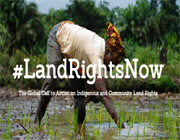
On 16-17 September 2014, a training on Universal Periodic Review (UPR) monitoring process and implementation of UPR recommendations was jointly organized by Kapaeeng Foundation and Action Aid at Sabarang Restaurant in Rangamati city. About 35 trainees took part in the training from the three hill districts.
In the opening session on 16 September 2014, Mr. Jyotirindra Bodhipriya Larma (Santu Larma), Chairman of Chittagong Hill Tracts Regional Council (CHTRC) was present as Chief Guest. Mr. Aung Swe Prue Chowdhury, Member of Rangamati Hill District Council; Mr. Arun Kanti Chakma, Chairman of Rangamati Sadar Upozila Council; Mr. Binota Moy Dhamai, Executive Council Member of Asia Indigenous Peoples Pact (AIPP) spoke as special guest in the opening session of the training program. Mr. Pallab Chakma, Executive Director of the Kapaeeng Foundation delivered welcome speech while Mr. Mangal Kumar Chakma, Adviser of Kapaeeng Foundation presided over the opening session. Mr. Hiran Mitra Chakma, Manager of Kapaeeng Foundation moderated the session.
In his speech, Mr. Larma said, Government of Bangladesh (GoB) carries out conspiracy against indigenous peoples of Chittagong Hill Districts (CHT). The GoB wants to evict indigenous peoples from CHT and rehabilitate the mainstream peoples into their land. CHTRC Chairman further said, if government has the positive aspect then they would have been implemented the CHT Accord in letter and spirit, which was signed by the then Awami League-led government on 2nd December 1997. But yet the government is not implementing its major issues, rather violating some of the provisions of the Accord. He mentioned, the government is walking reverse towards the implementation of CHT Accord and for these reason the human rights of indigenous Jumma people are constantly being violated.
He also added, the CHT has a great opportunity of tourism industry because of its natural beauty. But indigenous peoples are in fear that they might be evicted again from their ancestral land if tourism has been developed without their proper engagement. ‘We also want development through tourism but government has to consult with the local residence and institutions of the CHT before implementing any tourism project in this hilly region. Otherwise after 20/30 years the indigenous people will be extinct from CHT because of this tourism.
Mr. Aung Swe Prue Chowdhury, member of Rangamati HDC said, UPR is a new mechanism for the indigenous people’s rights movement. By working closely with this UN system involving civil society members we could influence government to implement the UPR recommendations accepted by the Bangladesh government during the 2nd cycle of the UPR session. Emphasizing the importance of institutional coordination among local government bodies, he said ‘many local institutions including local government bodies, CHTRC and HDCs do not have proper coordination among them, however, it is urgent for implementation of CHT Accord and development of the CHT’.
In his speech, Mr. Arun Kanti Chakma said, a way of development of indigenous peoples of CHT opened through the CHT Accord. But the lack of full implementation of Accord is interrupted the whole development process in CHT. He mentioned, Kaptai Dam was established more than 50 years ago, however, still many local people do not have the supply of electricity. This is violation of human rights, he added.
Mr. Binota Moy Dhamai said, UPR is a process to protect and promote of human rights worldwide. In this process, the countries have to be accountable on the records of the human rights situation before other member States of the UN. Therefore it is an opportunity for us. He mentioned, in 2009 and 2013 cycle of UPR, the Bangladesh government took some recommendations on indigenous peoples’ human rights issues. Now we can hold the governments and put pressure to fulfill those recommendations.
In his welcome speech, Mr. Pallab Chakma said, the government of Bangladesh took the recommendation of full implementation of CHT Accord and also promised to follow the ZERO tolerance policy regarding violence against women. But in reality government do not follow this, instead the perpetrators enjoy impunity. So it is needed to put pressure continuously and spread these messages to the top to bottom level of our peoples. Therefore, the government would think more positively to improve situation of indigenous peopels’ human rights issues before the next UPR, which will be held in 2017.
The Chair of the session Mr. Mangal Kumar Chakma said, UPR is not only a forum to discuss human rights issues but also political, economic, cultural and all rights issues can be raise on this system. He mentioned, the way of gaining the rights of indigenous peoples will be easy, if we can submit reports to the UN human rights council on the government progress on UPR recommendations.
In this training workshop, five working sessions were conducted on overview of UPR mechanism; recommendations of UPR and present status of its implementation; UNDRIP application in implementing UPR recommendations; UPR process- indigenous peoples engagement and challenges and a group work on strategy for implementation of UPR Recommendations. Mr. Binota Moy Dhamai, Mr Mangal Kumar Chakma, Raja Devasish Roy and Pallab Chakma discussed and facilitated the above mentioned working sessions.
A total of 35 participants comprising of elected public representatives, traditional leaders, civil society members, human rights defenders, women rights activists, journalist, development activists, and youth leaders attended the two-day long training session.



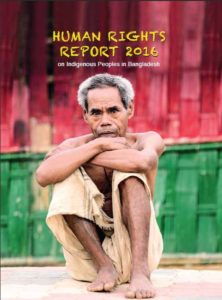
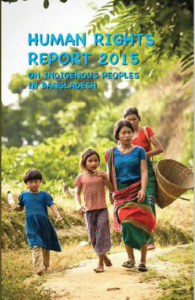
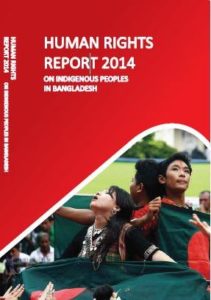
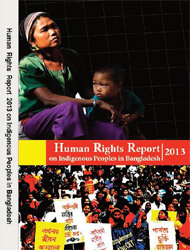
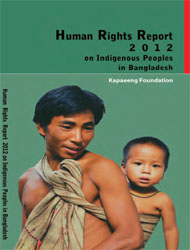
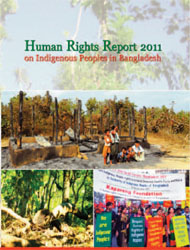
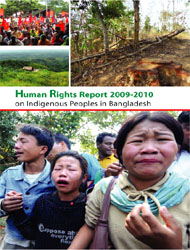

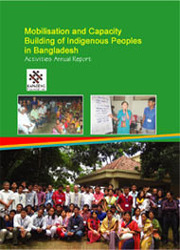



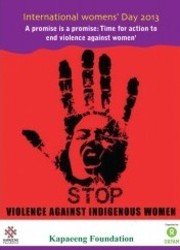
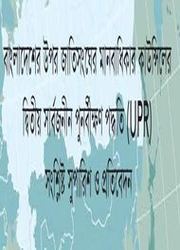
 September 20th, 2014
September 20th, 2014  KapaeengUser
KapaeengUser  Posted in
Posted in 